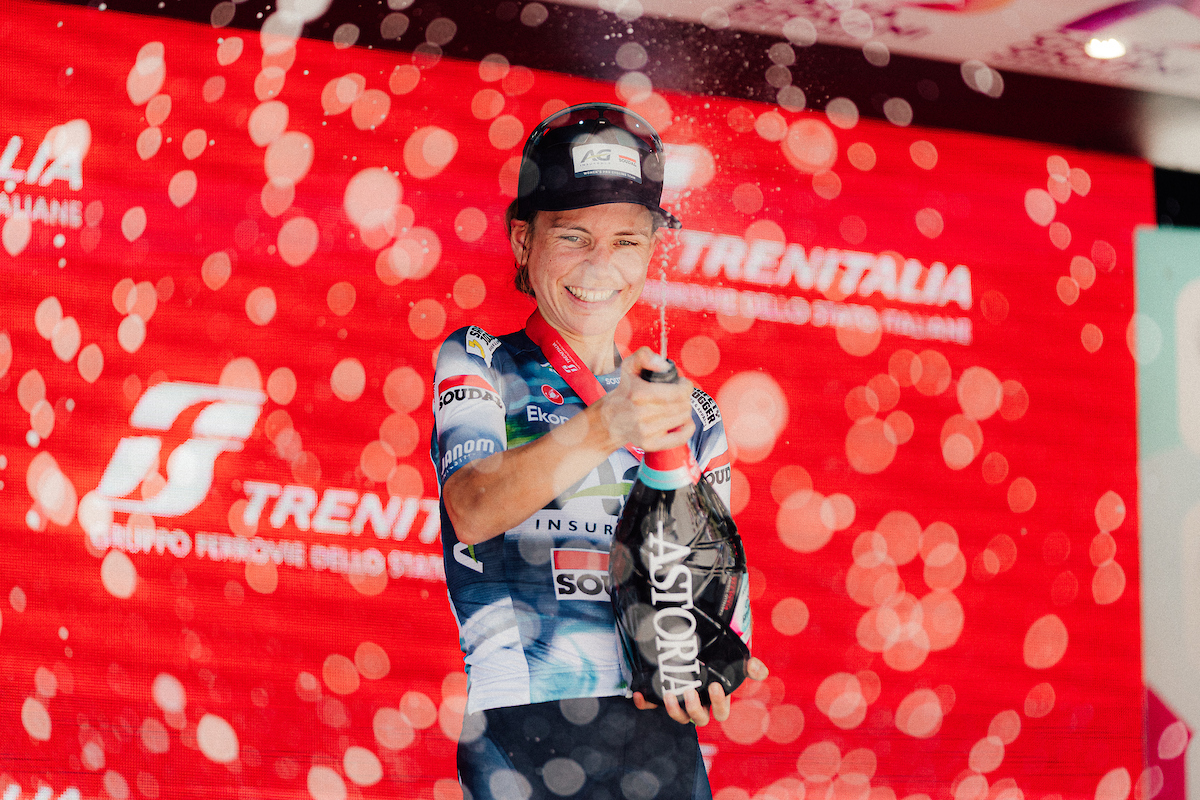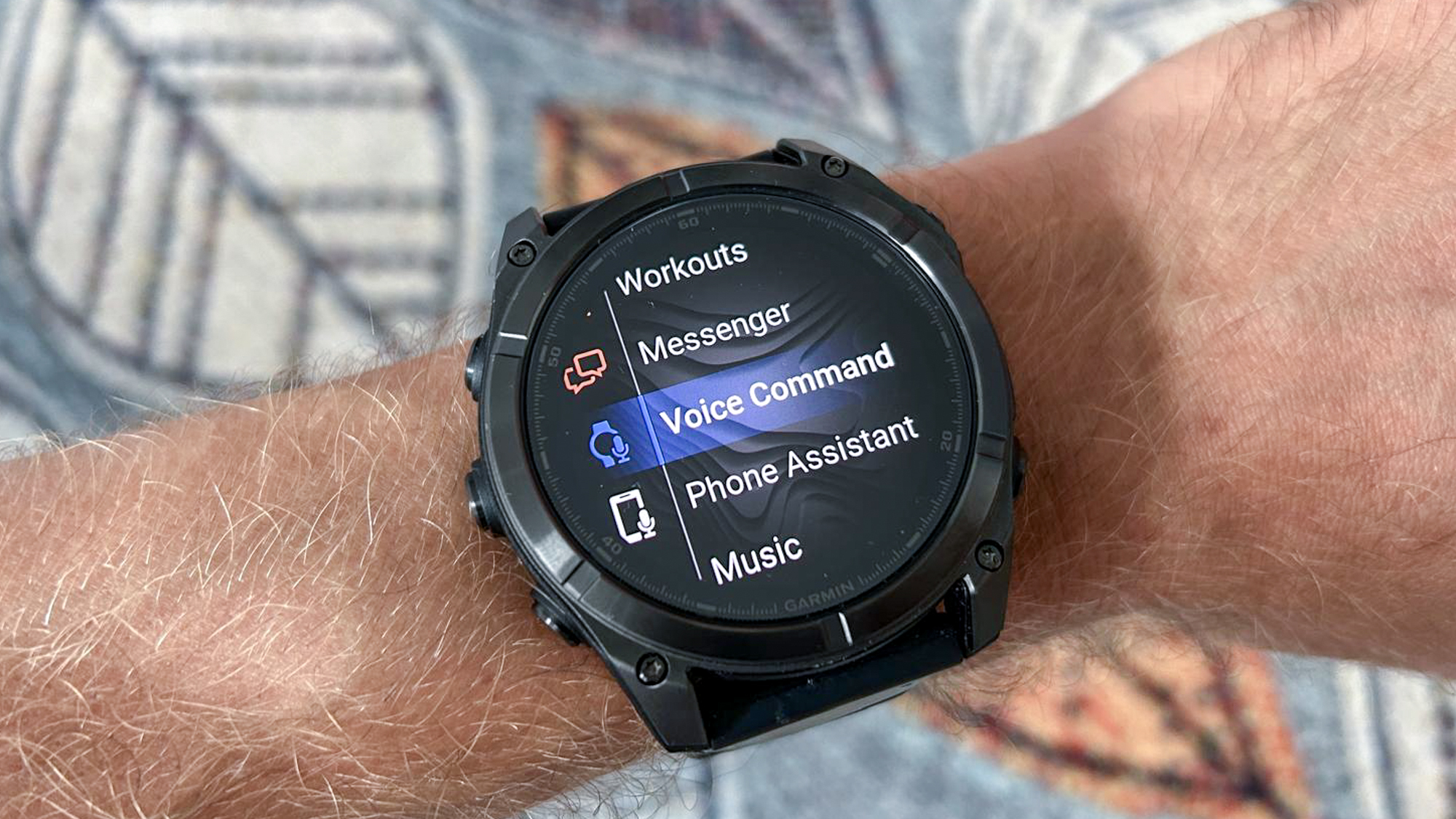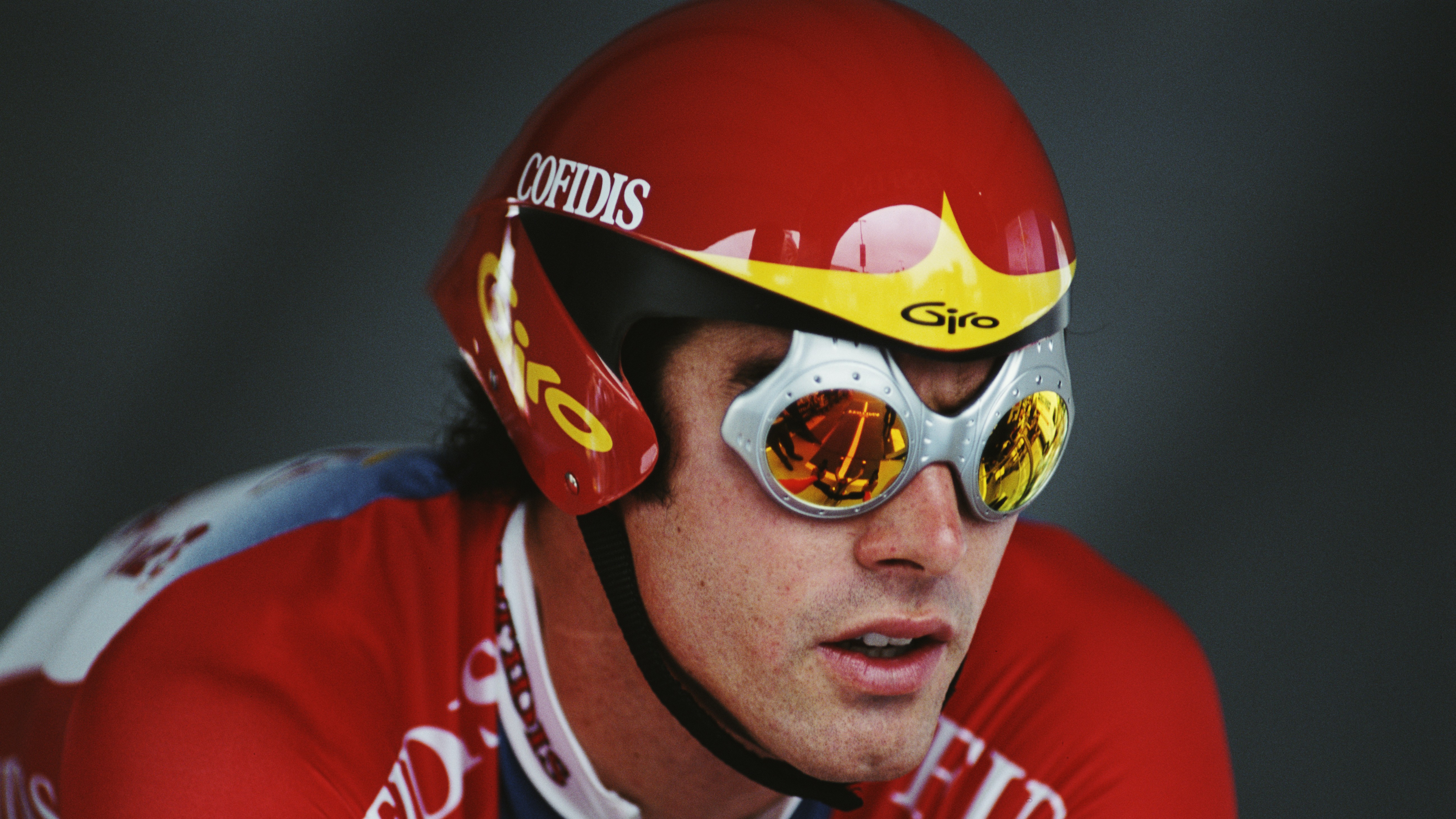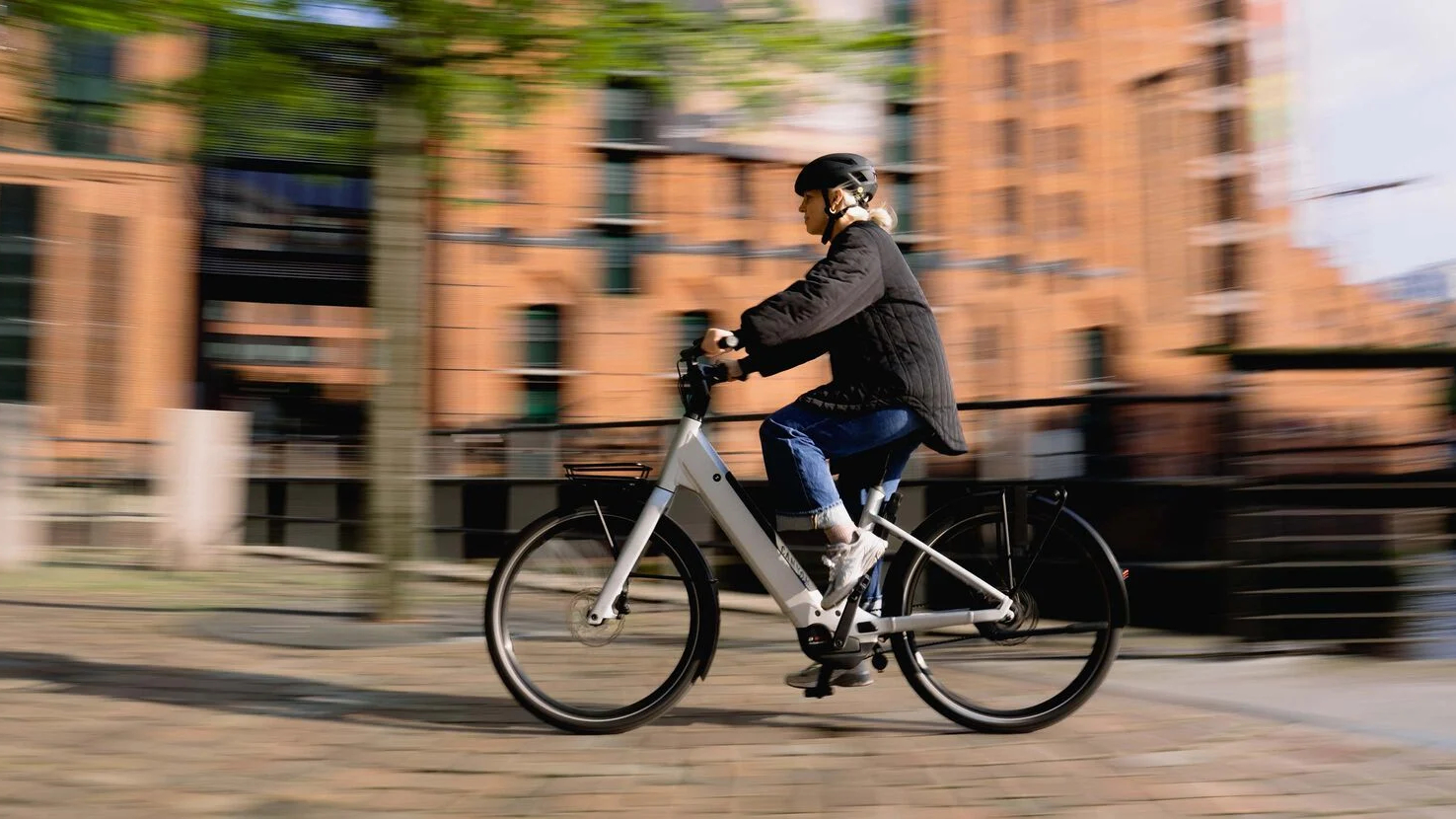Tour de France stage 7 preview – Super Planche brings the first mountain test
Can Pogacar be stopped from stamping his authority on the race in the Vosges?
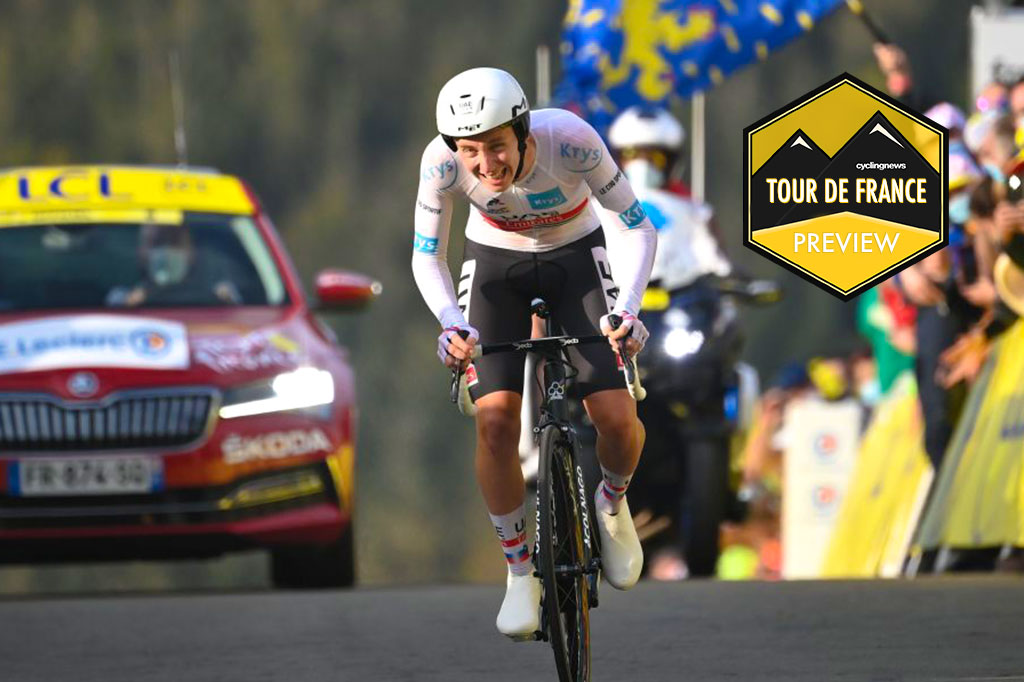
The Tour de France hasn't visited La Planche des Belles Filles since Tadej Pogačar crowned himself the champion of the race with a stunning come-from-behind victory in the penultimate stage time trial two years ago.
On Friday, the race revisits the climb, a relatively new addition to le Tour's stable of reliable, oft-used mountains, for the sixth time since Chris Froome kicked to victory as Sky teammate Bradley Wiggins ascended to yellow back in 2012.
Despite its status as a barely established fixture in the long history of the Tour, the climb itself – whether it's a time trial finisher, the tarmac version, or 'Super Planche' – has been a prognosticator of the overall winner far more often than not.
First there was Wiggins, who didn't concede yellow thereafter, then Nibali during his dominant Tour of 2014. Three years later it heralded the fourth of Froome's victories, and then, following the 2019 debut of Super Planche, came Pogačar's last-gasp stunner.
Since the climb's introduction to the race a decade ago, it has served as a taster for the major mountain challenges of the Alps and Pyrenees yet to come, the Vosges climb itself never an outright decider despite the reputation it has gained.
Come Friday, that's set to be the case once more, though even at this early stage few would put their necks on the line and bet against race leader Pogačar eventually sealing another overall victory in two weeks' time.
The Slovenian heads into the stage having proved himself the strongest of the GC contenders on three different terrains without having climbed anything harder than a third-category climb. He's taken time on his rivals in the Copenhagen time trial, on the cobbles of Paris-Roubaix, and now on the hills of the southern Ardennes.
Perhaps the biggest question posed about this year's stage is whether he will show his strength and impose his will on the race once more, or whether – as the GC men did on the debut of Super Planche in 2019 – the spoils will be left up to the breakaway.
Jumbo-Visma's Jonas Vingegaard, who lies 31 seconds back, represents the biggest threat to Pogačar, while Ineos have strength in numbers with a quartet of men – Adam Yates, Tom Pidcock, Geraint Thomas, and Dani Martínez – within a minute.
The Ineos train, as successful as it has been in the past, isn't likely to cause Pogačar any trouble on the 7km ascent, even if they can boast three podium contenders among their ranks. Transposing the team's aggressive tactics of the spring onto the mountain may cause more trouble for the maillot jaune, though that's easier said than done, of course.
Vingegaard, meanwhile, will hope to show the same kind of form which saw him distance Pogačar, however briefly, on Mont Ventoux last summer. Since Pogačar's ascent to superstardom in France two years ago, the Dane's burst on Ventoux has really been the only moment when he hasn't looked the strongest man going uphill in a stage race. Is it too early to say that Vingegaard remains the Tour's only hope of preventing another hegemonic Pogačar march to victory?
Behind him and Ineos, though not too far back, lie the likes of Aleksandr Vlasov, Romain Bardet, David Gaudu, Nairo Quintana, and Enric Mas. They're a group of riders here in France seeking a podium or top five, though on a good day any could surprise, with Vlasov probably most likely given the form he's shown since joined Bora-Hansgrohe.
As for Roglič, well at 2:27 down he's seemingly way out of any sort of contention. He could fall in line behind Vingegaard, or his team could use him as something of a wildcard with little to lose. Any GC-upending attacks from the Slovenian would be unlikely to come on Super Planche, however.
The route – 24% gradients a sting in the tail after 176km of racing
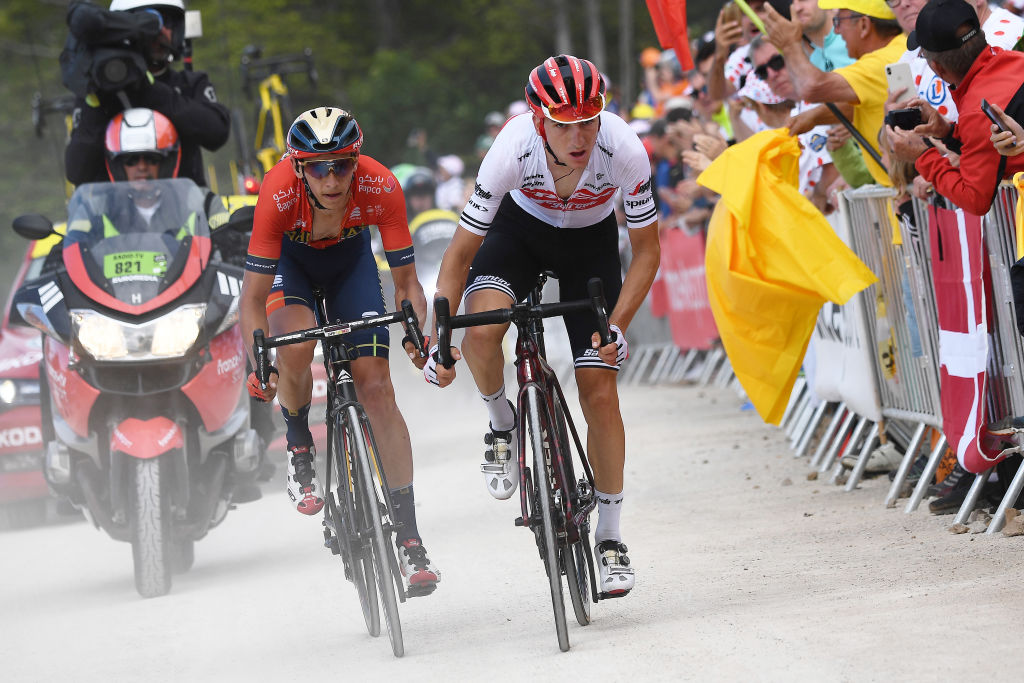
The climb itself comes at the end of a 176.3km run south-east from the Nancy suburb of Tomblaine down into the Vosges mountains, in a day which is, for the most part, a carbon copy of the 2012 parcours.
Back then, the race started and finished in the same place – minus the 'Super' section of the climb - visiting Gérardmer and the third-category climb of the Col de la Grosse Pierre along the way, with a run-in from the east to the finale.
The 2022 stage measures 22km less than 2012, though aside from switching the third-category Col du Mont de Fourche with the similarly-unimportant Col des Croix, there are no changes that will make any material difference to what goes on later.
It's all about the final climb, then, where the break which forms on the 100 flat kilometres to start the day will hope to contest victory as they did three years ago. The Grosse Pierre (3.1km at 6.4%) and the Croix (3.2km at 6.3%) provide a handful of mountain points along the way, though neither they nor the handful of other uncategorised hills inside the final 60km aren't likely to cause the riders any real trouble.
The final climb to the finish starts in the quiet village of Plancher-les-Mines, the main square of which will host the team buses and a selection of the Tour's press corps as the peloton races past.
Around a kilometre later, the climb begins as the D16 winds into the forest, with the five hairpins of the climb awaiting the riders on the way to the top. Immediately, the gradient reaches into the double digits with a 13% stretch among the 9.4% opening kilometre.
From there on out, it's almost all black (9%-plus) and red (6-8.9%) in the Tour roadbook, with the tough third and fourth kilometres averaging 9.5%. The 'old' finish at the ski station lies just outside the flamme rouge marking a kilometre to go, where the riders will be grappling with sections at 20% before the road levels off at the start line which welcomed the wins of Froome, Nibali, Fabio Aru, and Pogačar.
The trauma doesn't end there, however, as Giulio Ciccone – who took yellow after finishing runner-up to Dylan Teuns atop Super Planche – knows all too well.
"Shit climb, really shit climb," the Italian joked about the mountain. "For sure it's not so long but it's hard and steep, especially the last ramp. You can see the finish there, but you need a lot of time to arrive.
"The gravel is not a real problem because it's not so steep on the gravel part," Ciccone said, remarking on the hard-packed gravel which forms around half of the final kilometre.
"It's quite fast, so it's OK. The first part of the climb is also OK, a good road and regular. It's a really good climb, but not one of the hardest ones."
The final 300 metres after that gravel section ramps up once more, with the steepest slopes coming on the 'Super' addition to the climb as the riders grovel their way to the line. It was in those dying metres – which hit 24% – where Teuns outmuscled Ciccone last time, and where the stage could be decided once again on Friday.
"[2019] was a bit different because we did many climbs before, so we arrived there already tired," Ciccone said of the stage which took in two other first-category climbs among four other classified tests.
"But for sure I was playing for the victory and not for the yellow, so it wasn't in my expectations. We went fast from the bottom of the climb.
"I was for sure almost 100% to win the stage and then Teuns flicked me in the last part, so I was a bit angry in the final, but then it was all good with the yellow."
The secret to doing well, as Ciccone knows all too well from past experience, is to be in front when that final ramp hits.
"Honestly, I don't know but for sure you need to take the last ramp really in front," he joked. "Because it's too hard."
Key details
Stage 7: Tomblaine to La Super Planche des Belles Filles
Date: July 8, 2022
Distance: 176.3km
Stage timing: 13:05 - 17:15 CEST
Stage type: Mountain
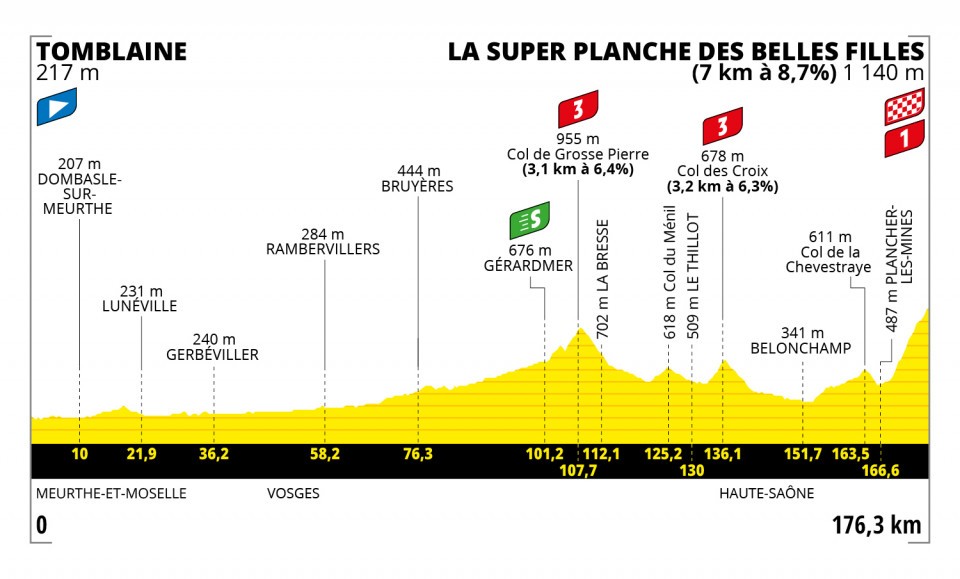
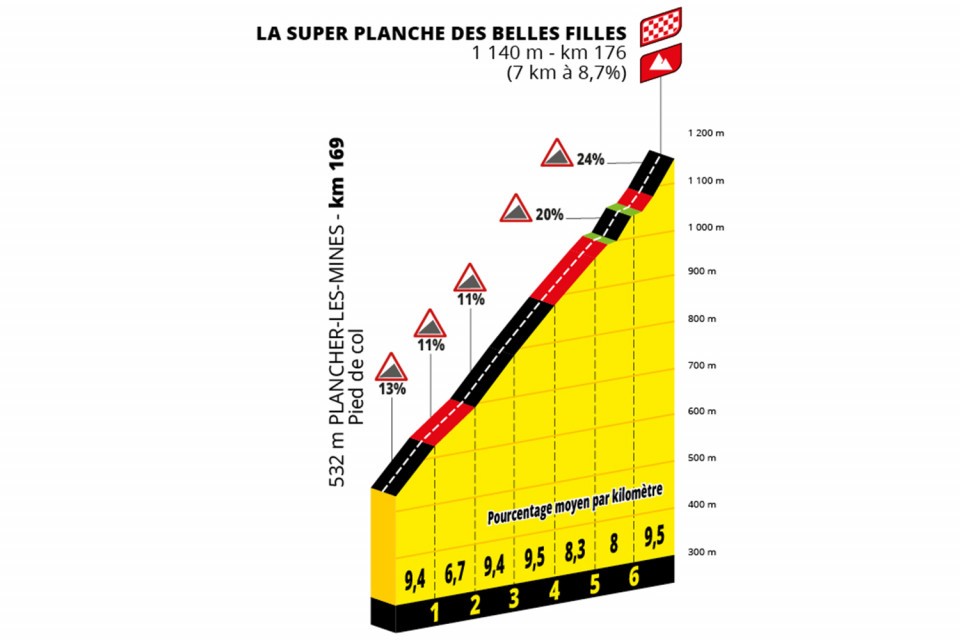
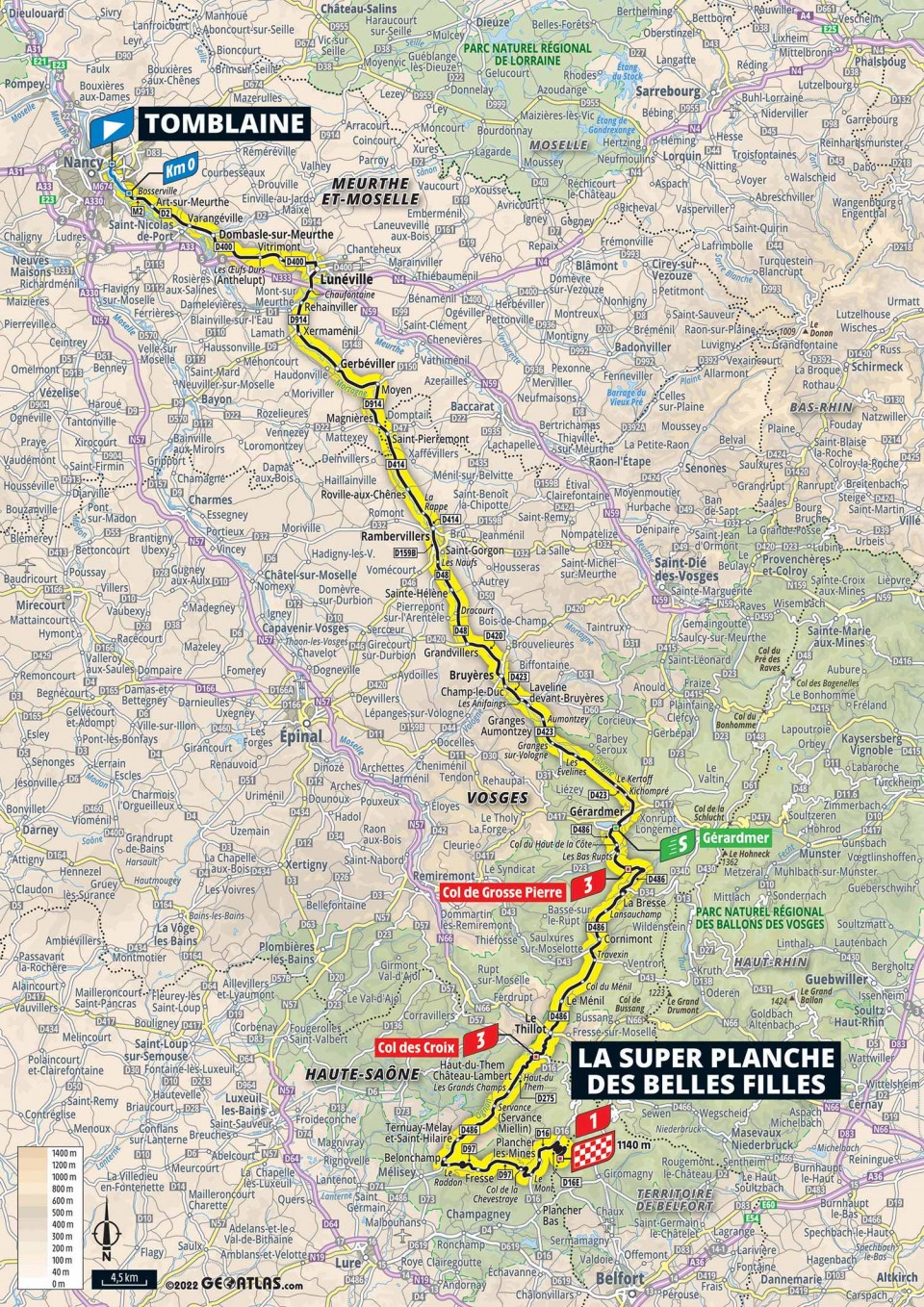
The latest race content, interviews, features, reviews and expert buying guides, direct to your inbox!

Dani Ostanek is Senior News Writer at Cyclingnews, having joined in 2017 as a freelance contributor and later being hired full-time. Before joining the team, she had written for numerous major publications in the cycling world, including CyclingWeekly and Rouleur. She writes and edits at Cyclingnews as well as running newsletter, social media, and how to watch campaigns.
Latest on Cyclingnews
-
'Beyond my wildest dreams' – Sarah Gigante’s rocky road to the top step of the stage 4 podium at the Giro d’Italia Women
24-year-old Australian takes first Women's WorldTour win in Europe as she carves out the perfect comeback from iliac artery endofibrosis surgery -
The Garmin Fenix 8 is the very latest in Garmin's smartwatch tech – now with a rare $100 off in this Amazon Prime Day deal
If you're considering an upgrade to your fitness-tracking technology, this Garmin smartwatch deal is well worth grabbing fast -
Fresh sunglasses are one of the key cycling style choices, and some of the nicest pairs are on sale right now for Amazon Prime Day
There are some excellent cycling sunglasses on sale now for Amazon Prime Day -
Canyon is offering 30% discount on this e-bike for Amazon Prime Day, plus four more electric bike deals worth checking out
Whether you're looking for an electric bike for road, gravel or urban commuting, these are the best Prime Day deals around
